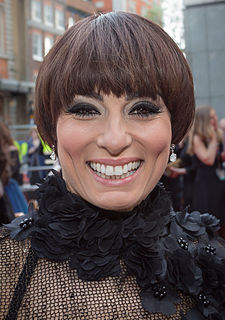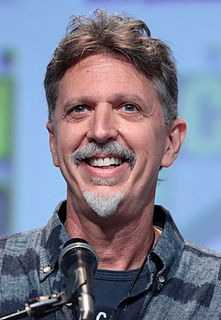A Quote by Flavia Cacace
Beautiful memories tell our story, and wrap themselves in ribbons of the heart.
Quote Topics
Related Quotes
I like the idea all memory is fiction, that we have queued a couple of things in the back of our minds and when we call forth those memories, we are essentially filling in the blanks. We're basically telling ourselves a story, but that story changes based on how old we are, and what mood we're in, and if we've seen photographs recently. We trust other people to tell us the story of our lives before we can remember it, and usually that's our parents and usually it works, but obviously not always. And everybody's interpretation is going to be different.
I think that is what we do by preserving and telling our stories. If you don't tell your stories, other people will tell their story about you. It's important that we nurture and protect these memories. Things change. Existence means change. So, the kind of precious memories about being black for my generation won't exist for my kids' and grandkids' generations unless we preserve them through fiction, through film, through comic books, and every other form of media we can possibly utilize to perpetuate the story of the great African-American people.
You usually get one or the other, you get someone who knows how to tell a story but they don't necessarily know about light and camera and rhythm, or you get someone who can make beautiful images but they can't necessarily tell a great story. He does both and I think he's going to be one of the film-makers that our time is remembered for.
We are trying to communicate that which lies in our deepest heart, which has no words, which can only be hinted at through the means of a story. And somehow, miraculously, a story that comes from deep in my heart calls from a reader that which is deepest in his or her heart, and together from our secret hidden selves we create a story that neither of us could have told alone.
You can very often start a new season with a lot more viewers than you had, leaving off the season before. It's a chance to pull the show into a train station, stop the train, and let all these new viewers on, so you can tell a new story. In some ways, a second season is a chance to tell a brand new story that you can wrap up, at the end of it.
I think that people have to have a story. When you tell a story, most people are not good storytellers because they think it's about them. You have to make your story, whatever story it is you're telling, their story. So you have to get good at telling a story so they can identify themselves in your story.
The happening and telling are very different things. This doesn’t mean that the story isn’t true, only that I honestly don’t know anymore if I really remember it or only remember how to tell it. Language does this to our memories, simplifies, solidifies, codifies, mummifies. An off-told story is like a photograph in a family album. Eventually it replaces the moment it was meant to capture.
If you gauge how you're doing on whether somebody is responding vocally or not, you're up a creek. You can't do that; you kind of have to be inside of your work and play the scene. And tell the story every day. Tell the story. Tell the story. Regardless of how people are responding, I'm going to tell the story.
But when I say it isn't meant for anyone's eyes, I don't mean it in the sense of one of those novel manuscripts people keep in a drawer, insisting they don't care if anyone else ever reads it or not.The people I have known who do that, I am convinced, have no faith in themselves as writers and know, deep down, that the novel is flawed, that they don't know how to tell the story, or they don't understand what the story is, or they haven't really got a story to tell. The manuscript in the drawer is the story.






































